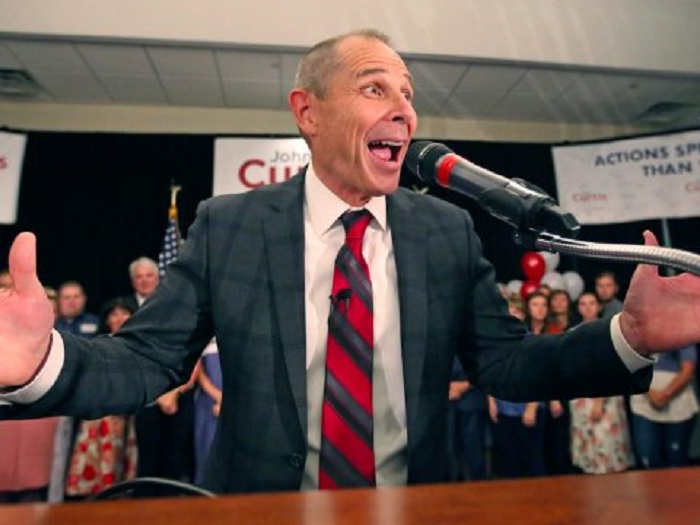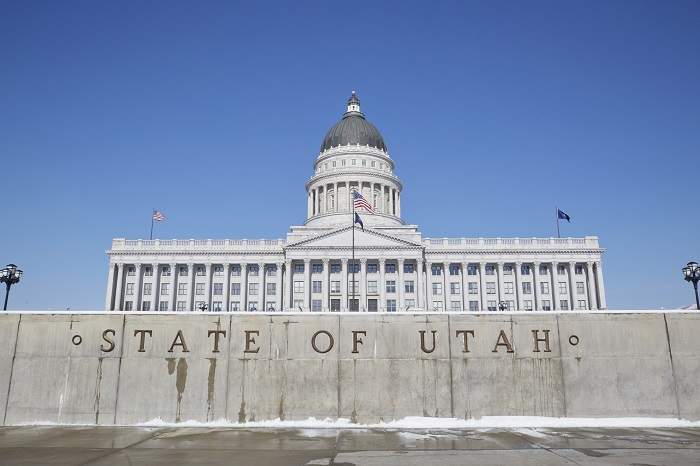
Ironies and shocking comments among aspirers for U.S. congress and a city council seat figured into the latest campaign cycle this year in Utah. John Curtis and Steve Smith also were not transparent and dishonest, respectively.
John Curtis and ‘Ethics Awareness Week’
The email said that Curtis would give a keynote address titled “cultivating positive dialogue in public discourse” Sept. 26 as the highlight of Utah Valley University’s “Ethics Awareness Week.”
So for an event entirely focused on doing the right thing, a person in the world of smoke-and-mirrors (as a candidate for U.S. Congress) was the man of the hour, yet, it wasn’t supposed to be noted that Curtis is stumping for office?
“Our decision to invite John Curtis to participate in Ethics Awareness Week was based upon his successful tenure as mayor of the largest city in Utah County,” said Brian Birch, who as the director of the Center for the Study of Ethics, was responsible for the event.
Curtis is the mayor of Provo, but his jurisdiction has nothing to do with UVU, which is in a different city.
In his response to me, Birch also cited inviting Curtis on the claim of Curtis’ “very public commitment to transparency and civil discourse.”
But the last time I checked, at least, just three days before Birch’s statement, Curtis didn’t even have a page with his stance on issues. (He still sat at only four issues, not even a quarter of opponents’ just two weeks before Election Day.) And before giving that speech on “positive dialogue in public discourse,” Curtis was urging folks to sign a petition to build a wall along the U.S. border with Mexico. The wall has been divisive in the public forum since Donald Trump continued his own polarization with a push for it even before becoming president, as a candidate.
“Please let me know if you have any further questions,” Birch added after his aforementioned comments.
So I then asked how much of Birch’s response was informed by Birch being under the UVU administrative umbrella.
He did not reply.

Steve Smith: ‘young black men will not change how they are perceived until they change how they behave’
The Alliance for a Better Utah discovered that Smith made offensive public comments in response to the controversial killing of Trayvon Martin by George Zimmerman.
“Many of the problems in the black community are a result of black culture” and “young black men will not change how they are perceived until they change how they behave,” Smith wrote in 2013.
African-Americans “view the solutions to these problems (education, marital stability, a work ethic) as in-authentically black — too white,” Smith wrote on Facebook, then claiming that protests over the treatment of the African-American community are “manufactured and intended to blame whites (again) for every conceivable black problem.”
Better Utah fellow Laura Boyer wrote that Smith’s remarks “appear to be inappropriate at the least, and made with racist undercurrent at the worst.”
“Smith’s comments invalidate an entire group of people and promote an elitist attitude that white Americans have a stronger work ethic than black Americans,” she said. “How can he effectively represent his community if he has contempt for members within it?”
Smith then claimed that he deleted the posts “shortly after they were posted.” But Better Utah provided screenshots showing that they were still visible. Yet, Smith claimed yet again that they were gone. And as of 6:16 a.m. Oct. 23, the posts were entirely there as seen via links here, here and here.
Better Utah launched a petition asking Smith “do you still stand by these statements?”
“I stand by what I wrote,” Smith said in a statement. “I do not believe I am racist, and I believe people who know me would agree that I am not a racist.”
“It is up to the voters of Sandy City to decide if these comments from Mr. Smith align with their values as he stands for reelection next month,” said Josh Kanter, Better Utah’s founder and board chair.
The group also took aim at those who have endorsed Smith in his reelection bid, including Utah Senate President Wayne Niederhauser, asking them to denounce the statements.






